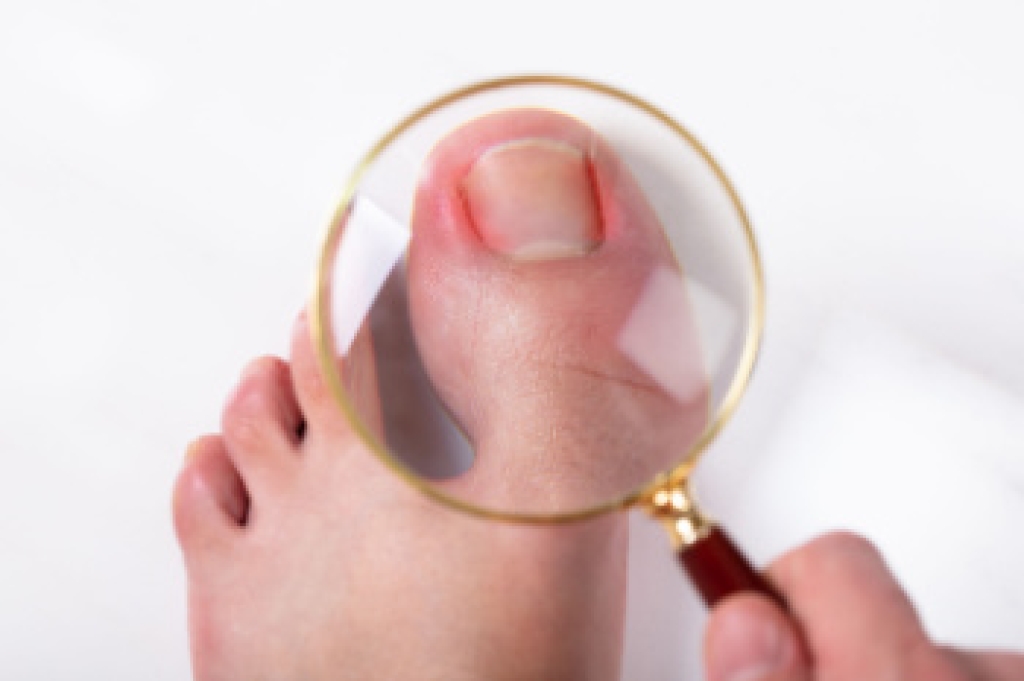
An ingrown toenail occurs when the edge of a toenail grows into the skin instead of over it, most often affecting the big toe. This can cause pain, swelling, and redness surrounding the toenail, and may lead to infection, if not treated. Common causes of ingrown toenails include trimming the nails too short or rounding their edges, wearing shoes that put pressure on the toes, and injuring the toe. Some people are more prone to ingrown toenails due to the natural shape of their nails, or repeated stress from activities like running or kicking. Risk factors also include poor circulation, especially in people with diabetes, which can make healing more difficult and increase the risk of infection. When pain, swelling, or drainage occur, a podiatrist may recommend lifting the nail, removing part of the nail, or treating an infection. If you have a painful or infected ingrown toenail, it is suggested that you schedule an appointment with a podiatrist for appropriate treatment.
Ingrown toenails may initially present themselves as a minor discomfort, but they may progress into an infection in the skin without proper treatment. For more information about ingrown toenails, contact one of our podiatrists of Community Foot Specialists. Our doctors can provide the care you need to keep you pain-free and on your feet.
Ingrown Toenails
Ingrown toenails are caused when the corner or side of a toenail grows into the soft flesh surrounding it. They often result in redness, swelling, pain, and in some cases, infection. This condition typically affects the big toe and may recur if it is not treated properly.
Causes
- Improper toenail trimming
- Genetics
- Improper shoe fitting
- Injury from pedicures or nail picking
- Abnormal gait
- Poor hygiene
You are more likely to develop an ingrown toenail if you are obese, have diabetes, arthritis, or have any fungal infection in your nails. Additionally, people who have foot or toe deformities are at a higher risk of developing an ingrown toenail.
Symptoms
Some symptoms of ingrown toenails are redness, swelling, and pain. In rare cases, there may be a yellowish drainage coming from the nail.
Treatment
Ignoring an ingrown toenail can have serious complications. Infections of the nail border can progress to a deeper soft-tissue infection, which can then turn into a bone infection. You should always speak with your podiatrist if you suspect you have an ingrown toenail, especially if you have diabetes or poor circulation.
If you have any questions, please feel free to contact our offices located in Beavercreek, Dayton, and Vandalia, OH . We offer the newest diagnostic and treatment technologies for all your foot care needs.
